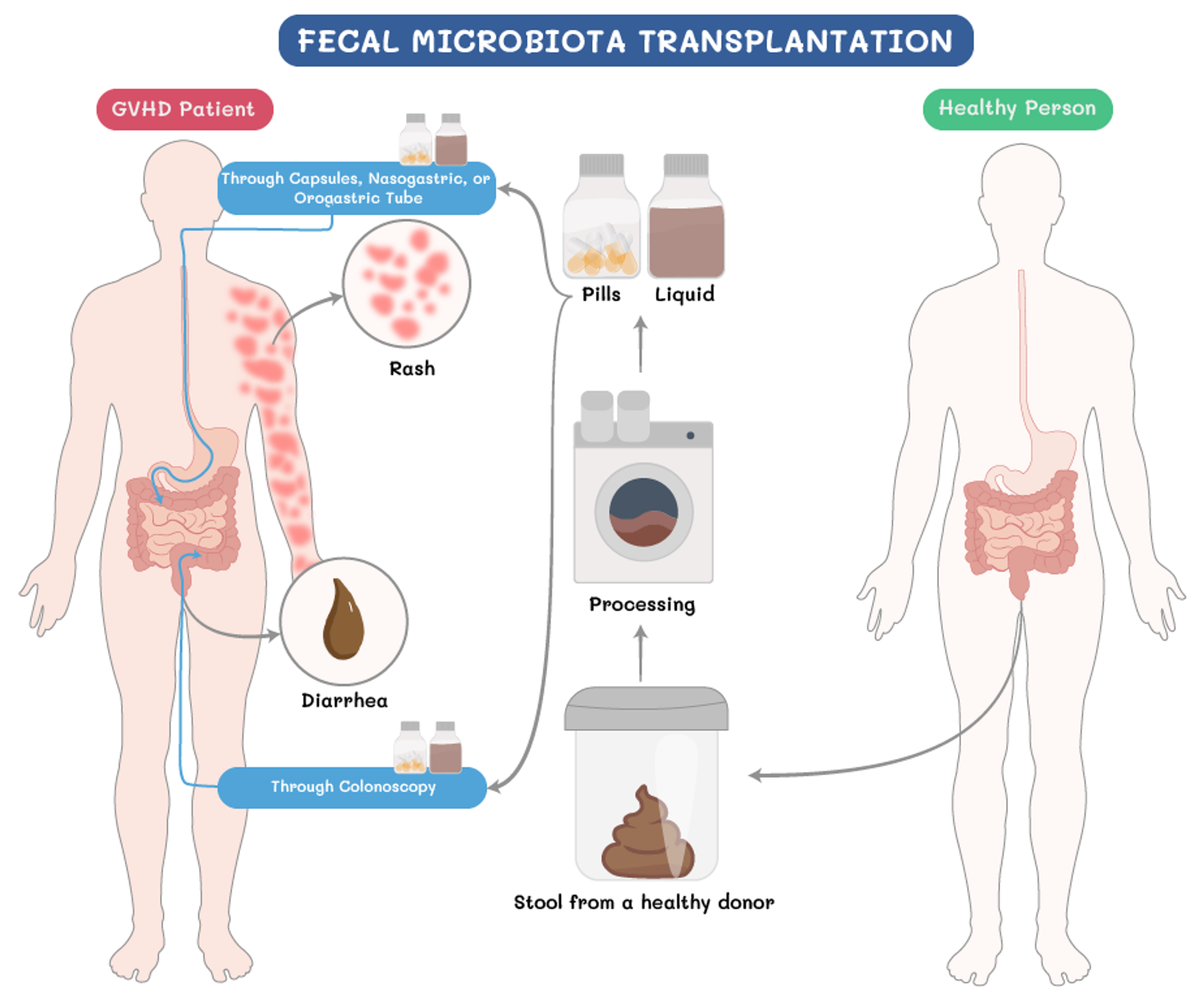
Rising Trends of Fecal Microbiota Transplantation (FMT) Market Segments, Graphs, Growth With in
Donors get blood and stool tests to check for infections or drugs that could be passed along in their poop. Stool donors can't take antibiotics for at least a month before the transplant.
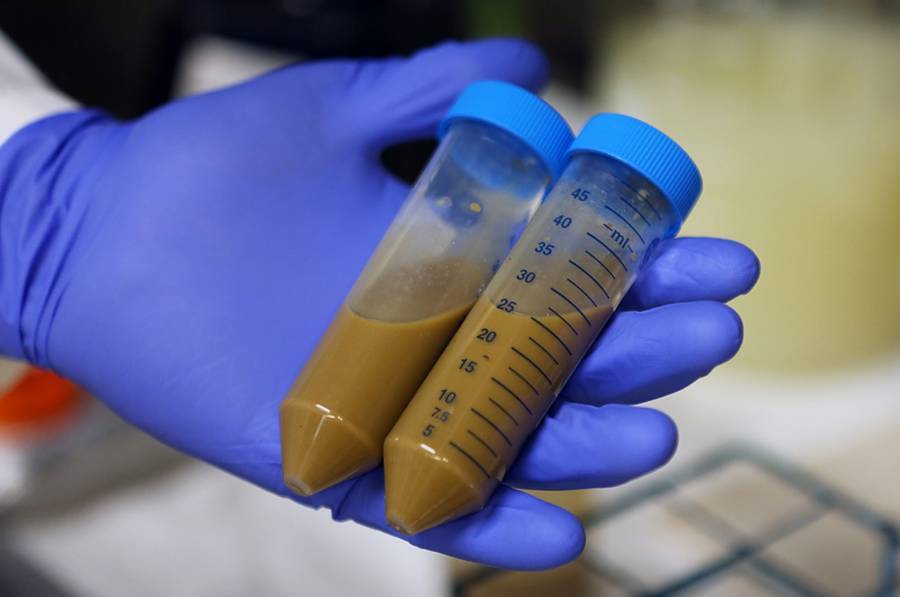
Poop Transplant What It Is And How We Do It
Fecal microbiota transplants fall into one of two categories: Lower GI tract: The colonoscopy method is used very frequently since it allows more thorough coverage of the colon's interior walls and reduces the chance of leakage after the procedure. However, liquid donor stool can also be delivered via enema.
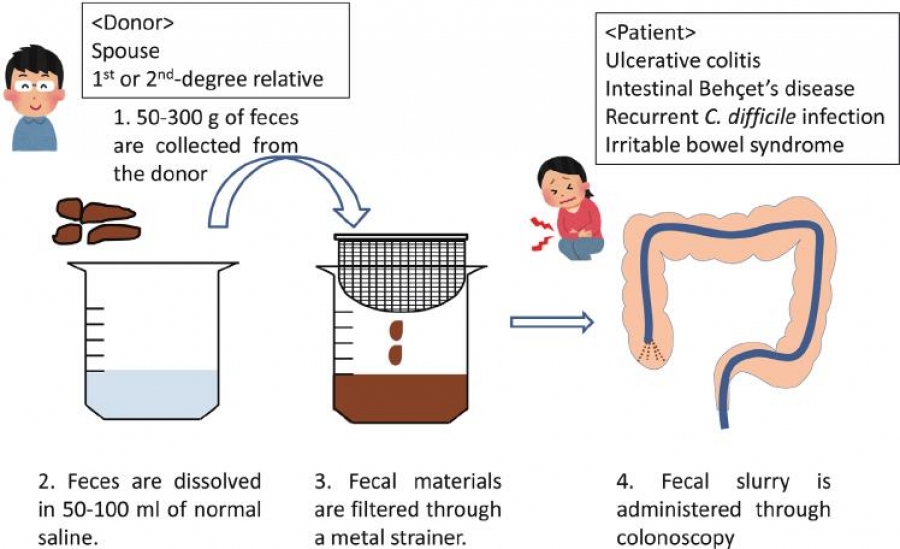
Fecal microbial transfer (Fecal transplantation) in children?
Faecal microbiota transplantation (FMT) is also called a stool or poo transplantation. It can be an effective treatment for people with: diarrhoea caused by a type of bacteria called Clostridioides difficile (C diff); symptoms caused by ulcerative colitis; FMT is thought to work by helping to rebalance the bacteria and other organisms (the microbiota) in your intestines.

How Fecal Transplants Can Save Lives YouTube
Fecal microbiota transplantation (FMT) is a medical procedure to transplant a small sample of stool (feces) from a healthy colon into a diseased colon. Each healthy stool sample contains thousands of beneficial microbiota that can improve the health of the diseased colon in a variety of ways. Healthcare providers currently prescribe fecal.

Stool transplants for bowel disease what’s the evidence? Evidently Cochrane
Therapeutic Goods Order No. 105 - Standard for Faecal Microbiota Transplant Products (TGO 105) TGO 105 commenced on 1 July 2021 and is a legislative instrument that specifies the minimal requirements for stool donor and FMT product screening to ensure the quality, safety and efficacy of FMT products.. This new FMT product standard was drafted based on feedback received through public.

Stool Transplants and the Dangers of Antibiotics YouTube
Fecal transplantation is a procedure to collect feces, also called stool or poop, from a healthy donor and introduce them into a patient's gastrointestinal tract. The procedure can control an infection called Clostridium difficile, or C. diff, by adding healthy bacteria into the recipient's intestines. FMT can be performed in children and.

Types of poop Appearance, color, and what is normal
A procedure some might consider unconventional has proven to be an effective treatment for a serious and chronic type of bowel disorder. Fecal Microbiota Transplantation, or FMT, calls for the transplantation of healthy fecal material into the colon of a person infected with Clostridium difficile, also called C. difficile or CDI. The procedure restores compromised stool and stops the.
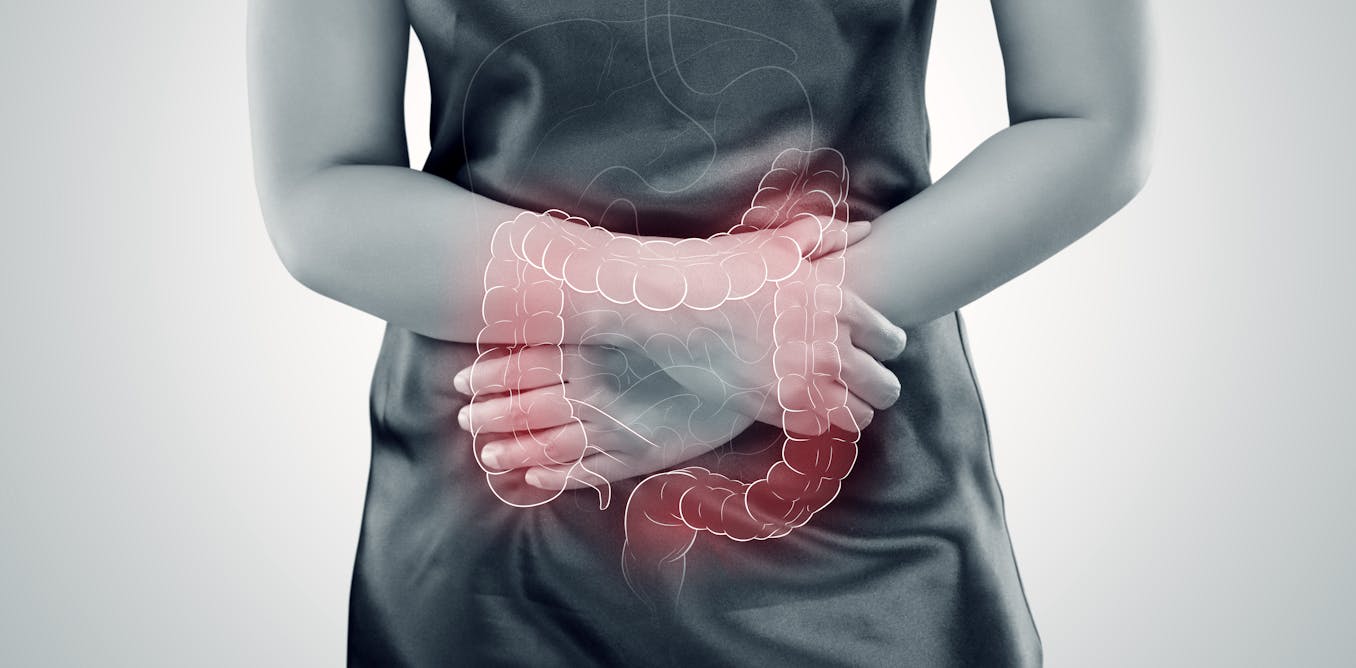
Stool transplantation shows promise treating cancer therapy side effect
Dr. Suhirdan has been performing Faecal Microbiota Transplant for several years now, getting solid results for his patients. He has also conducted a study on the efficacy of FMT on patients with Post Infectious IBS. Through this experience, Dr. Suhirdan is able to identify which patients are suitable candidates for FMT and is always impressed at the results that a natural treatment can return.

Getting A POOP TRANSPLANT Earth Lab YouTube
A fecal microbiota transplant (FMT), sometimes colloquially referred to as a "stool transplant" or "poop transplant", is a medical procedure that involves transferring fecal material from a healthy donor to the gastrointestinal tract of a patient who has a microbiome imbalance or disease. The goal of FMT is to restore the balance of.

How to perform a stool transplant
Faecal transplants might help treat illnesses such as arthritis, diabetes and cancer. And one day it could be as simple as taking a pill made from a stranger's poo. Our writer volunteers a sample
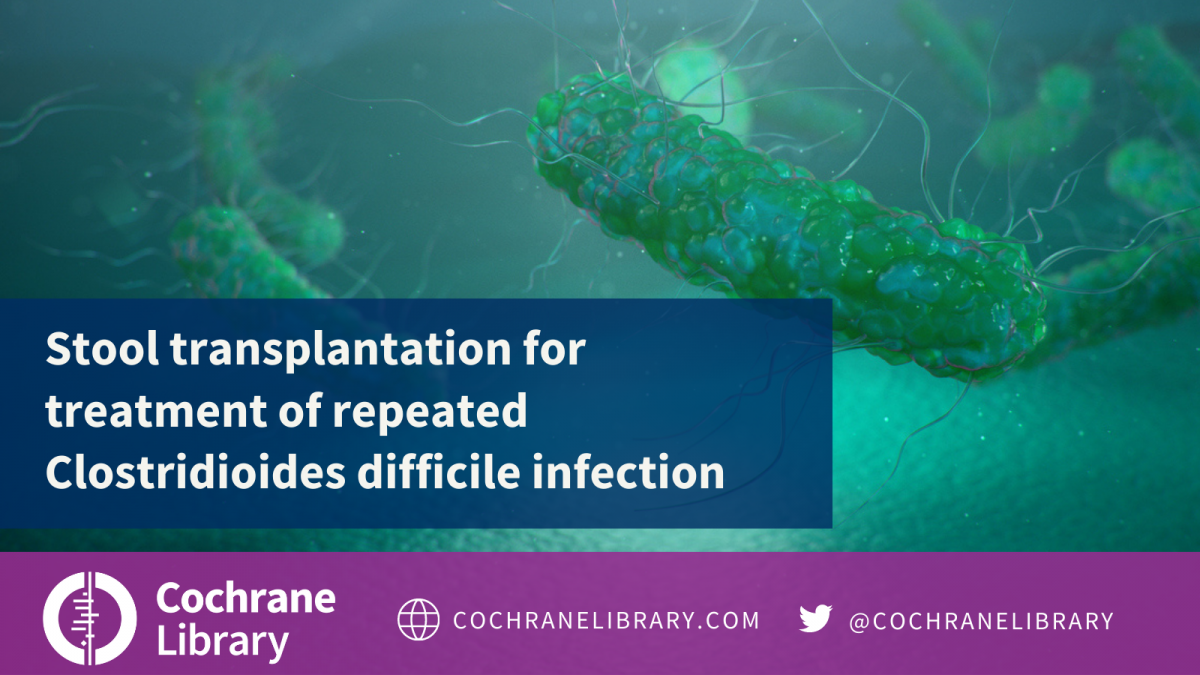
Cochrane study finds stool transplants more effective than antibiotics for treating recurring
The first poo transplant has been officially approved in Australia - in fact, it's the first time a faecal microbiota transplant (FMT) has been given regulatory approval anywhere in the world.

Why A Fecal Transplant Can help Improve Your GI YouTube
The Microbiome Faecal Transplant surgery is performed under mild sedation. The steps include: Administration of sedative after the patient has been placed in a horizontal position, An IV line is placed in the patient to push fluids as required, The physician proceeds to insert the flexible colonoscope and advance it through the entire colon, and.

Bristol Stool Form Scale MDCalc
The donor stool is typically provided by a stool bank. Hospitals can have their own stool banks, or they can partner with an external stool bank, the largest of which is OpenBiome. OpenBiome is a nonprofit stool bank that is able to provide prescreened donor stool, similar to the Red Cross for blood donation.
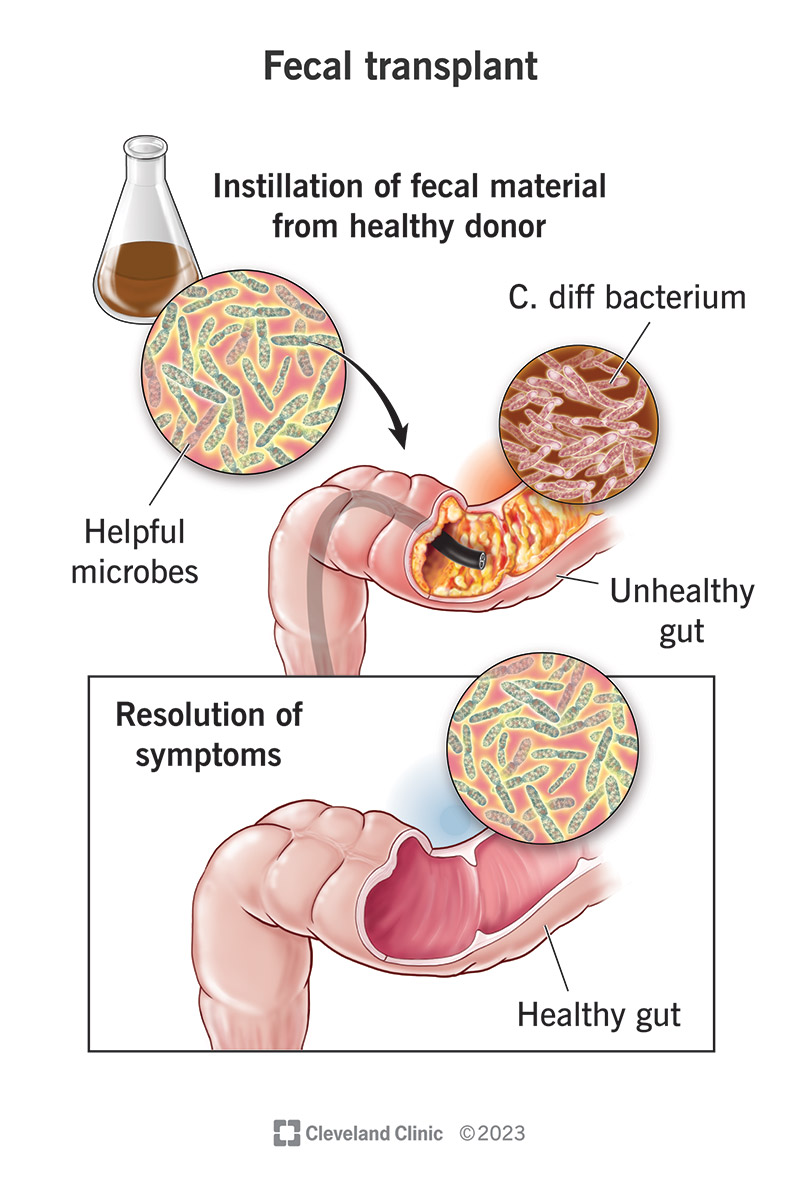
Fecal Transplant What It Is, What It Treats, Procedure & Risks
Fecal matter transplantation (also known as 'stool transplant' and 'fecal microbiota therapy'), is an experimental procedure of inserting stool from a healthy donor into a recipient to restore the normal microbiome (microorganisms that live in our body) in a recipient's large bowel.. In IBD, some studies have shown fecal matter.

Fecal Microbiota Transplantation Gastroenterology JAMA JAMA Network
You will be reimbursed for your donations. Step 1 - Check Your Eligibility. Step 2 - Clincal Assessment. Step 3 - Donate Poo. If you've checked the eligibility criteria above and think you are suitable for our Donor Program then please send us a message. Help us develop new treatments that will save lives. First Name *.

Yes, I had a Fecal Transplant and it was the Best Decision I've Made Well and Strong with MS
A fecal transplant, also known as fecal bacteriotherapy or fecal microbiota transplant (FMT), is the process of restoring the bacteria commonly found in the digestive tract with an infusion of feces (stool) from a donor. When the bacteria in the digestive tract is destroyed as the result of an illness, it can be very difficult to get back.